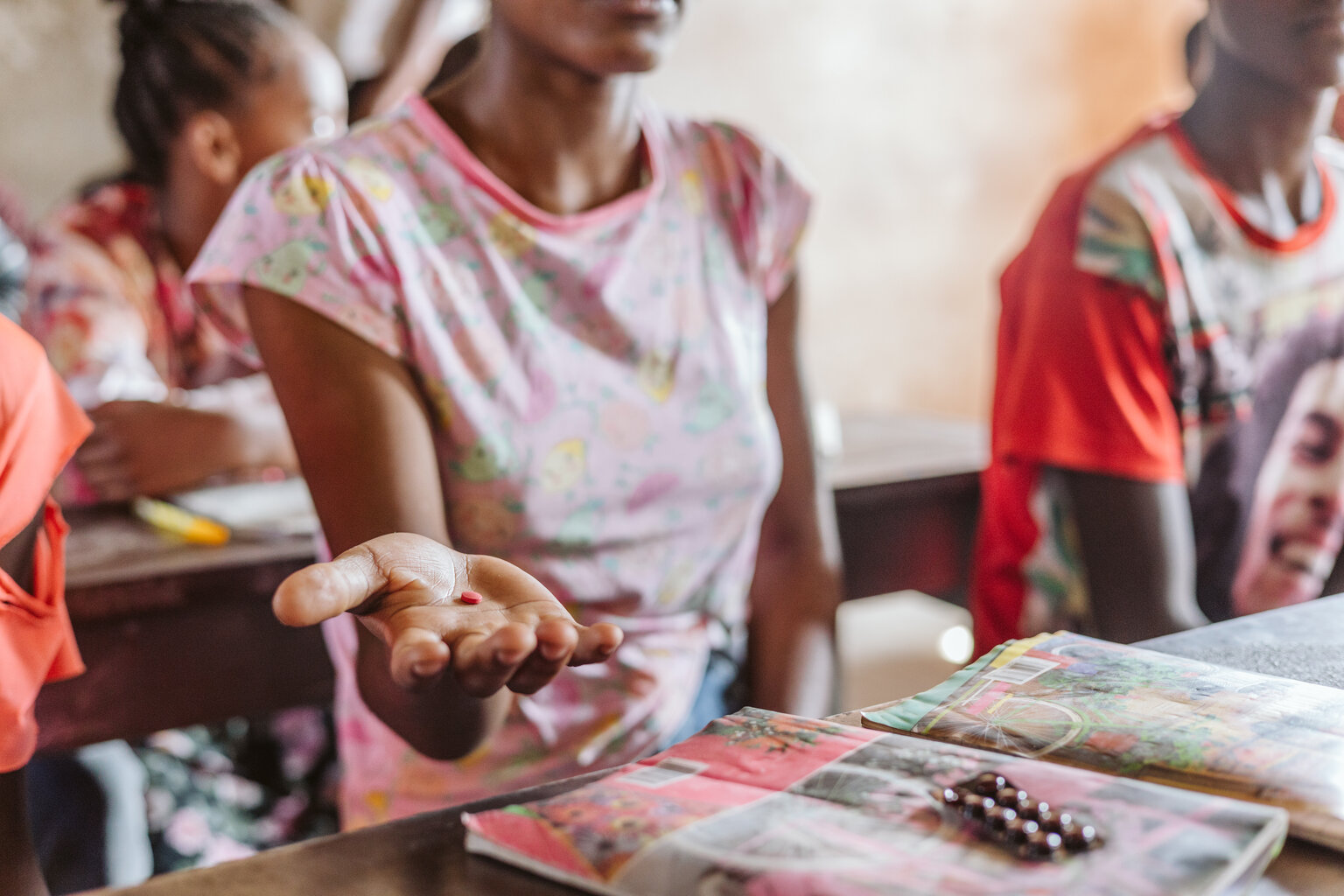Field Stories
In her words: Voices from girls around the world
October 5, 2023
Nutrition International celebrates WHO’s decision that will foster global progress in adolescent and women’s nutrition
Nutrition International commends the World Health Organization’s decision to include the new weekly iron and folic acid supplementation formula to the Model List of Essential Medicines – a decision that will accelerate adolescent nutrition and reduce anaemia as well as neural tube defect affected pregnancies for adolescent girls and women in low- and middle-income countries.
Posted on July 26, 2023
Ottawa, CANADA – On July 26, 2023, the World Health Organization (WHO) Expert Medicines Committee accepted Nutrition International’s submission to include the new formulation of weekly iron and folic acid supplementation (WIFAS) in the Model List of Essential Medicines (EML). The inclusion of this new formulation, containing ferrous salt, 60mg of elemental iron and 2.8mg of folic acid, will enable the acceleration of implementing policies and programs to advance adolescent nutrition, reduce global anaemia and will have the additional benefit of reducing neural tube defects (NTDs).
The submission aligns with Nutrition International’s commitments in the collaborative agreement with WHO as a non-state actor. This specific initiative is about ensuring menstruating women and adolescent girls have improved access to quality products to get the right amount of iron and folic acid throughout their lives.
“This decision is a key opportunity in addressing nutrition equity for adolescent girls and women.
— Mandana Arabi, Chief Technical Officer, Nutrition International
“The decision marks a significant breakthrough for adolescent nutrition programming,” said Dr. Marion Roche, Senior Technical Advisor, Adolescent and Women’s Health and Nutrition, Nutrition International. “With the inclusion of WIFAS in the EML, countries will gain improved access to WHO-recommended commodities and will be better placed to develop, cost and implement national WIFAS programs, effectively reducing anaemia in adolescent girls and women at scale.”
Until now, many programs have relied on maternal iron and folic acid supplementation as a temporary fix, but this approach has posed risks, supply challenges and shortages for both maternal and adolescent programs.
Over 30% of adolescent girls in low- and middle-income countries have anaemia, which is associated with reduced cognitive development, academic and economic potential, as well as increased morbidity and mortality. WIFAS has been identified as an effective public health strategy to reduce anaemia in regions where the prevalence of anaemia is 20% or higher among adolescent girls and women 15 –49 years of age.

“This is a key example of Nutrition International’s evidence to action approach to catalytic change and has been an initiative of the Global Technical Services unit that has been in the making for over five years,” said Dr. Mandana Arabi, Vice-President, Global Technical Services, Chief Technical Officer. “This decision is a key opportunity in addressing nutrition equity for adolescent girls and women.”
Nutrition International, in collaboration with partners, identified that the WHO recommended formula was unavailable in the market. This presented a major bottleneck to WIFAS programming as manufacturers were unwilling to produce a formula that was not listed on the EML. Similarly, countries were reluctant to support programming and delivery with commodities not yet on the EML or hesitant to program with a formulation that did not meet the standards in the WHO guidelines. The WHO recommended formulation for WIFAS had been previously submitted twice by other organizations, but were primarily rejected due to insufficient data on folic acid and its potential to reduce NTDs, in addition to some concerns around adherence.
To address this evidence gap, Nutrition International worked in partnership with world class researchers to conduct a three-arm, parallel-group randomized, double-blind, placebo-controlled folic acid efficacy trial on WIFAS. The trial results, along with program data, were used to inform the application to the 24th EML in December 2022. The program data demonstrated that WIFAS could be feasibly delivered and with high levels of adherence. Nutrition International led the submission, providing technical leadership, but the application was a collaborative effort developed in close consultation with several partners.
“Nutrition International will stand alongside governments and partners around the world, serving as an expert ally and using an evidence-based approach, to help unlock the potential of millions of adolescent girls.
— Joel Spicer, President and CEO, Nutrition International
“This is a positive turning point in global efforts to address the neglected issue of adolescent malnutrition,” said Joel Spicer, President and CEO, Nutrition International. “Nutrition International will stand alongside governments and partners around the world, serving as an expert ally and using an evidence-based approach, to help unlock the potential of millions of adolescent girls.”
The WHO’s Model list of Essential Medicines (EML), established in 1977, serves as a reference to selecting medicines, including nutritional supplements, to address essential health care needs of the population. The inclusion of a medicine on this list signifies that it should be consistently accessible, in sufficient quantities, within a functional healthcare system.
Nutrition International is committed to helping countries around the world use global and national evidence to help update their EMLs and understand any potential transitions of formulations used in their programs. With this addition to the EML, there is the opportunity to grow and shape the global market for WIFAS, leading to a larger number of suppliers, progressing towards domestic production leading to a reduction in procurement cost.